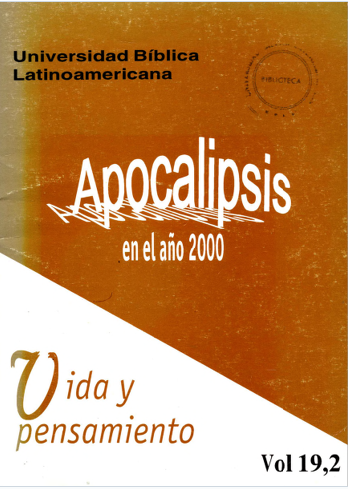El Apocalipsis como profecía y visión
La identidad de Juan como profeta
Abstract
Si una de las caracterizaciones que el autor del Apocalipsis hace de si mismo es la de testigo, vinculada con esta y ampliándola está la de profeta y visionario. El mensaje anunciado es un testimonio de la historia pero también una profecía. Tanto que la primera bienaventuranza del Apocalipsis ya menciona al libro como una profecía: “Bienaventurado el que lee y los que oyen las palabras de esta profecía, y guardan las cosas en ella escritas, porque el tiempo está cerca” (1.3). El carácter profético del libro es reafirmado en las advertencias y conjuros del final del libro, en 22.18-19. Pero justamente por su carácter profético el libro debe mantenerse abierto, de manera que el visionario recibe del ángel la orden de no sellarlo (22.10). Más aún, ya que el carácter profético de este libro está vinculado a la inminencia sus anuncios, “porque el tiempo está cerca”. «¡Vengo pronto! Bienaventurado el que guarda las palabras de la profecía de este libro» (22.7).
Downloads
The authors who publish in this journal accept the following conditions:
- The authors retain their author rights y grant to the journal the right of first publication, with the work registered with the Creative Commons attribution that allows third parties to use the published material as long as they give appropriate credit to the author and the first publication in this journal.
-
The authors may make other independent contractual agreements for the non-exclusive distribution of the version of the article published in this journal (e.g. include it in an institutional repository or publish it in a book) as long as they clearly indicate that the work was first published in this journal.

